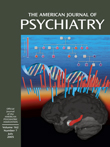In Sickness and Health
As a physician I’ve learned a great deal about the “doctor-patient” relationship, but only a fraction of what I’ve learned when I’m the one on the other side—the one in pain. That’s when I appreciate the exquisite sense of loss of control that patients experience. That is when I begin to understand the huge power that the healers, those “health care professionals,” hold over the ones in need of help. It’s pretty easy to get it when you’re lying on a stretcher waiting for the ride back from the X-ray department to the emergency room and the technicians are talking about their lunch break or their weekend plans and you’re looking at the ceiling tiles and wondering if the pain means something really serious—something that will change your entire life. It is also pretty clear when you’re the patient and the doctors come in for rounds and make a few statements and leave, and you wonder for the next 24 hours about the implications of those few words.
When I was sick this last time I had a new glimpse into that netherworld of the doctor-patient relationship. This time it wasn’t serious and I wasn’t in a hospital, just wracked with an intestinal virus that emptied my body of what seemed like all its fluids and strength. I was so depleted that my husband, who is also a physician, administered intravenous fluids to me at home over the course of an evening. Pretty unique actually, in an age when house calls by doctors have become so rare. The part about lying in my own bed next to a makeshift I.V. pole and using a glass jar from the kitchen for a “sharps container” as the fluid and medications were dripping into my arm was certainly a new and interesting esthetic experience, but the other part—the husband and wife as doctor and patient—was truly remarkable.
In our 20 years together we have seen each other sick, stressed, and vulnerable, and there have been occasions to care for one another. Physical and emotional intimacy are part of our relationship, with a reassuring ebb and flow of intensity. Nothing quite prepared me, however, for the psychic shock of watching my husband survey my arm for the purpose of finding the best vein to puncture. I was lying in bed—our bed—as he loomed over me. He held me with a tender and firm grip and his touch was gentle, but his mind was more distant—somewhere else—like a doctor. He completed his preparations, then penetrated the skin and the tissue below with a sharp needle. The act he has performed so many times on others but never on—or with—me. He secured the tubing and taped it in place, tidied up, and arranged my arm on a pillow, watching satisfied as the restorative fluid began to drip into my body.
“You were so nice to me,” I said in a slightly pathetic way, trying to convey the sense of appreciation of a helpless victim who is treated in a surprisingly kind manner by the often-cold doctor. “I treated you like I treat any other patient,” he replied. Strange answer. I guess I am glad that he is so nice to his patients, but maybe jealous too. On the other hand, I sensed that he was a bit distant with me—the way he needed to be to poke a hole in me with a sharp object—so I suppose he’s that way with them too. I could see and feel in a completely new way why patients fall in love with their doctors. The surge of gratitude and admiration that arises when someone in power focuses all his attention on you—on your health and well-being, on finding a way to minimize the pain of a helpful procedure. This is the unique physical and emotional intimacy of the doctor-patient relationship, which has the potential to be misconstrued as love, exploited by those in power, and cherished as an element of healing.
Address correspondence and reprint requests to Dr. Steiner, Connecticut Mental Health Center, Yale School of Medicine, Rm. 148, 34 Park St., New Haven, CT 06508; [email protected] (e-mail).



